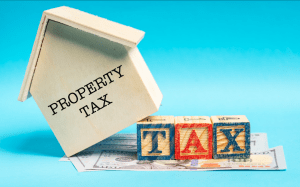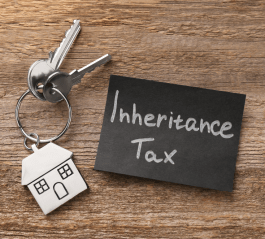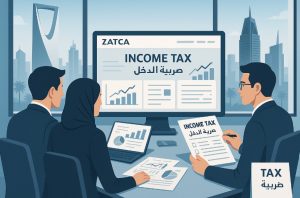This is the first UK Budget by a Labour government since 2010, and the first one from a woman Chancellor of the Exchequer in Rachel Reeves. Considering the role has existed for 800 years, this is a significant moment for representation in politics.
Will this Budget be a defining moment for the new Labour UK Government? This is was never going to be an easy Budget with giveaways and we all knew that. It was claimed to be a budget for the average working person and it has largely met that brief, although some will not be pleased with certain announcements.
Following every Budget or Statement, I write an article to give you a concise overview of some of the main points, with particular reference to any changes that have major relevance to those living outside of the UK, and especially in the GCC.
The UK press will cover many points in detail but much of it will not be directly relevant to expats so this article focuses on the points that will be most relevant to us.
 Reeves started by saying that that in July of this year the Labour Party was given a mandate for change and the way to drive the economy is by investment.
Reeves started by saying that that in July of this year the Labour Party was given a mandate for change and the way to drive the economy is by investment.
There are certainly a lot of areas of investment mentioned in the full Budget report. And all investment needs to be paid for.
The annoucements are wide-ranging.
The Treasury will publish a “line by line” analysis of the £22bn black hole claim and says the Office for Budget responsibility (OBR) will publish their own review. Reeves stated, “the previous government did not provide the OBR with the information” and if they had done so the Spring forecast would have been “materially different”.
Overall, taxes are to rise by £40bn in this budget according to the Chancellor, more than the £35bn was what was being mooted before.
Now to the relevant announcements.
Non-Dom Tax status
The “Non-dom” tax regime is to be scrapped as it is considered to be outdated. This had been expected, or at least changes were expected with the intention of replacing it with a “fairer residency-based system”.
Residency and domicile are very different concepts in UK Law and most Brits who live abroad will remain UK domiciled. It will not affect expats who are tax resident in the GCC.
A non-dom is essentially a UK resident whose permanent home, or domicile, for tax purposes is outside Britain. They are taxed differently, generally only on income arising in the UK or overseas income that is brought into the UK, rather than on their worldwide earnings.
Instead, a fixed amount is payable on global earning but it is hugely beneficial to those who qualify for non-dom status. This was an option for a limited number of years.
According to HMRC there were around 74,000 non-doms in the UK in the 2022/23 tax year. From a study in 2028, more than 90% were born outside of the UK and three in 10 people who earned £5m or more claimed non-dom status.
You may recall that in the last UK Budget, in March 2024, the then Chancellor Jeremy Hunt, announced that non-dom status was going to be phased out so changes are not a new concept.
I have seen a lot of outrage about this from people in certain parts of my industry of financial services but I suspect that much of that is due to their income source, that is clients, drying up.
The changes include the ending the use of offshore trusts to shelter assets from Inheritance Tax and scrapping the planned 50% tax reduction for foreign income in the first year of the new regime. I don’t think this will affect trust wrappers for life policies but that is yet to be clarified.
UK state pensions
 The State Pension Triple Lock is to remain in existence for the duration of this Parliament, which could mean until July 2030.
The State Pension Triple Lock is to remain in existence for the duration of this Parliament, which could mean until July 2030.
The basic and new State Pension will increase by 4.1% in 2025-26, in line with earnings growth.
That means over 12 million pensioners will receive up to an extra £470 per year.
Working age benefits will be uprated in full in the tax year 2025-26 by the September 2024 Consumer Price Index (CPI) or an inflation rate of 1.7%.
UK private pensions
A major change to taxation on UK pensions. Pensions passed on will be subject to inheritance tax with effect from April 2027.
Pensions are currently exempt from Inheritance Tax and not classed as part of your estate when you die.
This means that some people will need to review their estate planning, and make further provision for their dependents too.
If you have been relying on a pension fund to support your children or a foreign spouse if you die, the amount they receive could be reduced by 40%. There is no inheritance tax to pay on transfers between spouses – unless one party is not British or UK domiciled.
See this article for details if you have a non-British partner.
For people who are long-term tax resident in the GCC, they may also want to consider if it is in their interest to withdraw pension monies while resident here as many can do so without paying Uk income tax. Formerly this was often not advisable as it would increase their inheritance tax liability but provided other sensible steps are taken, it should be something to discuss.
If you are UK domiciled, and nearly all UK passport holders are no matter where they live, you are subject to UK inheritance tax on your worldwide assets so this is very relevant.
This is a topic to be considered carefully so get in touch for independent advice both on pensions and estate planning.
It appears that the heavy tax charge when transferring a UK pension to a QROPS (Qualifying Recognised Overseas Pension Scheme) may no longer apply in certain cases.
Stamp Duty
 There will be a further increase in Stamp Duty Land tax (SDLT) in England and Northern Ireland. for second or additional homes. The current surcharge of 2% will increase to 5% from 31st October 2024.
There will be a further increase in Stamp Duty Land tax (SDLT) in England and Northern Ireland. for second or additional homes. The current surcharge of 2% will increase to 5% from 31st October 2024.
That is for exchange of contracts as well as for completions.
Scotland has its own tax. No mention of Wales. Announcement awaited
See the end of this article for my own comments on this topic.
Capital Gains Tax
Increases in capital gains tax (CGT) were expected. There have been different rates for property and other assets but this differential is being removed and all gains will be taxed equally.
The lower rate of Capital Gains Tax will rise from 10% to 18%, and the higher rate from 20% to 24%. This is the same as the existing rates on residential property with basic rate taxpayers currently pay 18% on any gains they make when selling property, while higher and additional-rate taxpayers pay 24%.
When it comes to property CGT applies to the sale of second home, or any property that is not your principal private residence. If you are tax-resident in the GCC, your UK home is not a principal private residence.
For most long-term expats, there is no capital gains to pay on gains in the UAE, such as on selling a property that you own in the UAE. Likewise for local or offshore investments.
This is largely due to the Dual Taxation Agreement that is in place between the UK and the UAE, and other GCC countries.
These capital taxes may sound high but they are still lower than any other G7 country. Plus, only around 1% of UK residents actually pay any CGT each year.
Income Tax
No change to the threshold freezes previously announced and they will be increased in line with inflation from the tax year 2028/29.
That means there will continue to be “fiscal drag” for some time yet.
Inheritance Tax
The current inheritance tax thresholds are due to be frozen until April 2028, and the government is extending these threshold freezes for a further two years to April 2030.
 The Nil Rate Band will remain at £325,000 but there are additional allowances for couples and for passing on a main residence
The Nil Rate Band will remain at £325,000 but there are additional allowances for couples and for passing on a main residence
Note that only 6% of UK estates are subject to inheritance tax in the UK.
There will be reforms to agricultural property relief and business property relief from April 2026.
(I will be publishing an article about UK inheritance tax before long so subscribe to receive that.)
National Insurance
Employers’ National Insurance contributions will rise from 13.8% to 15% with effect from April 2025.
In addition, the threshold at which businesses start paying National Insurance on a workers’ earnings will be lowered from £9,100 to £5,000. This should partly offset the increase for smaller businesses.
Individual employees will not pay any extra.
This will raise £25bn per year by the end of the forecast period.
The employment allowance that many businesses can claim will increase from £5,000 to £10,500, which the chancellor says will mean 865,000 employers won’t pay any National Insurance at all next year.
Private schooling
 As was known, VAT at the standard rate of 20% will be introduced on private school fees from January 2025.
As was known, VAT at the standard rate of 20% will be introduced on private school fees from January 2025.
There will also be legislation to remove private school business rates relief (charitable rate relief) from April 2025.
To put this into context, some 5.9% of all children at school in the UK attend private schools.
There will be compensation paid for those children who can only attend a private school due to special educational needs.
The money raised is expected to be over £9 billion and will be used to support public services
Other points
- An increase in the minimum living wage by 6%t to £12.12 per hour, for workers aged 21 or over. Plans to have one rate for all ages over the next few years. Expected to benefit over 3 million people.
- Fuel duty frozen for another year so no tax rise in petrol. The existing 5p cut is to be maintained for another year.
- £11.8bn to be set aside to compensate those affected by the infected blood scandal and £1.8 billion to compensate victims of the Post Office Horizon scandal.
- Carers will be able to earn up to £10,000 a year while still claiming carers allowance, in an increase to the earnings limit. The largest increase since it was introduced in 1976.
- A £22,6bn increase in the NHS day to day spending plus an increase of £3.1bn in the capital budget. Bigger than many expected.
- Introduction of vaping duty from 1st October 2026 at £2.20 per 10ml of liquid. Plus, a one-off tobacco duty rise.
- Duty on beer cut by 1p from 1st February 2025
- Plans to increase efficiency and staff, and improve systems. (Hurrah!)
- A small increase in Air Passenger Duty. £2 for an economy-class short haul flight. Way bigger increases for private jets.
- Support and funding for green energy and environmental initiatives.
- School budgets increases. Tripling investment in breakfast clubs. A £2.3bn increase in core school budgets from next year and £300m for further education
 The appointment of Covid Corruption Commissioner was announced. They will lead work to recover public funds from companies that took unfair advantage of the COVID-19 pandemic.
The appointment of Covid Corruption Commissioner was announced. They will lead work to recover public funds from companies that took unfair advantage of the COVID-19 pandemic.
As Reeves stated, “that money belongs in our public services. And taxpayers want it back.”
It is common knowledge that large sums were “lost” so to reclaim this would be a large benefit. I hope it works.
I haven’t seen any announcements that specifically relate to non-residents. There is nothing in the Budget report either and no mention of making voluntary National Insurance contributions either so that will be unchanged. (Contact me for my free, informative fact sheet on how to make voluntary payments.)
My comments
You may ask if this is a good Budget. But what defines a good Budget? In my view it is one that makes a positive difference to people and the economy, to the majority not just the well-off.
Bear in mind that the mean average income in the UK is £36,000. The vast majority of people in the UK earn less than £60,000 a year. The Budget is intended to support the majority and to fund public services for the greater good. These are the “working people” that Labour refers to.
No one loves paying tax. But tax needs to paid in a fair society, to fund public services and for the benefit of everyone.
I may have some bias here but I am not impressed by the increase in SDLT. It is already high for anyone even buying even one investment property and there is a huge shortage of decent rental property in the UK.
Without people buying property to rent out there will be an even bigger shortfall. That will lead to an increase in rents. A benefit to landlords but not to the tenants.
While planning restrictions are being softened you still have to have companies to build the properties and that takes time, a lot of time, and a lot of money. Even with the will and funding to build, developers have huge delays in obtaining the materials they need, in part due to Brexit. Fewer companies will take the risk if they think there will be a smaller pool of buyers.
There was an announcement to build more social housing. While the government is adding £500 million to the Affordable Homes Programme “to kickstart the biggest increase to social and affordable housebuilding in a generation, putting us on the path to building 1.5 million homes over this Parliament”, I really can’t see that target being met.
The proposed increase in social housing is a good thing but it takes a very long time to build property. It is not going to happen overnight and it is not going to take up the shortfall to any substantial degree. It will not lead to a reduction in rents.
 Property prices are not going to fall in the UK. Many people either want or need to rent so they need to have somewhere to live. The reality is that here always have been landlords and always will be.
Property prices are not going to fall in the UK. Many people either want or need to rent so they need to have somewhere to live. The reality is that here always have been landlords and always will be.
If you are considering investing in UK property, don’t let this put you off as though it will cost you more upfront, the yields are likely to rise. And this is a long-term investment.
The change to pension taxation on death will affect a number of people so is something that will need to be looked at individually. The idea behind a tax-relieved pension was always to provide an income to the individual, and not to be a vehicle for the accumulation of capital sums for the purposes of inheritance so I am not wholly surprised at this change.
I provide independent advice on pensions, so get in touch if you require expert advice. This is a professional, fee-based service.
I have read through the full Budget for Autumn 2024 as issued by HM Treasury (a huge 168 pages this time!) and there is nothing else specifically related to taxing expats.
I write articles such as this one as part of the personal financial planning service and that I provide to expats, and the general consumer, financial and legal information that I provide in The National newspaper, other UAE media, and on the Facebook group British Expats Dubai.
To arrange a meeting to discuss any aspect of your personal financial planning, please email me at keren@holbornassets.com
Please take a look at the other useful articles on this website, including those mentioned below.
Areas of advice. How can I assist?
Currency transfers. How to get the best rates with full security
Need to know. UK property taxes
Living in the UAE. 10 major money mistakes to avoid



